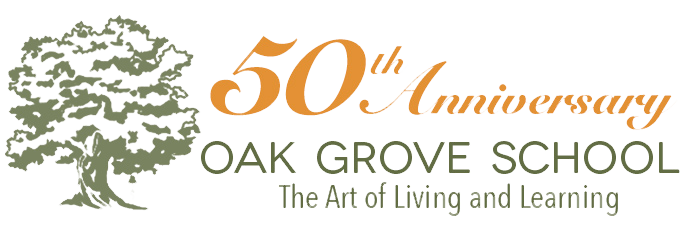From the Head of School
Oak Grove School was established by our founder, J. Krishnamurti, in 1975. He communicated his intention through dialogues, talks, and written works, most explicitly in Letters to the Schools, which he wrote from 1978 to 1981. Although Krishnamurti shared a great deal on the topic of education, he intentionally did not leave a blueprint, nor did he give any individual or school the authority to interpret his teachings for others.
The purpose of Oak Grove School, as inspired by the teachings of Krishnamurti, is to provide functional knowledge while simultaneously honoring each student’s innate intelligence with the goal of realizing human potential, not only for the individual’s sake, but for the sake of humanity.
Providing an excellent academic program is vital. One must learn to communicate well and be able to deeply explore maths, recognize great works of poetry and art, have a solid concept of world religions, geography, and science, develop skills in organization, use tools (physical and technological), be comfortable with public speaking, create and read music, and explore a somatic understanding of one’s body through sports, yoga, breathing, and dance. One must be able to develop proficiency in exploring the natural world and travel in cultures different from one’s own.

What, however, is required for the honoring of one’s innate intelligence? This aspect of our purpose is a bit more difficult to implement, as the teachings suggest there is no way or method. We approach this, therefore, with openness and inquiry, opportunities for self-reflection, silence, pure observation, physical and psychological space, stretching our comfort zone, exploring our relationship to nature, ourselves, others and the world. All this could be seen as within the realm of self-understanding as a way to awaken the individual child’s perfect intelligence.
Having a school without an explicit blueprint is an awesome challenge, which asks us to actively question and look at how we provide the opportunity to learn functional knowledge while at the same time exploring the intelligence within ourselves. It is a never-ending process of observation and inquiry.
“Education in our schools is not only the acquisition of knowledge but what is far more important – the awakening of intelligence which will then utilize knowledge. It is never the other way round. The awakening of intelligence is our concern in all these schools and the inevitable question then arises: how is this intelligence to be awakened? What is the system, what is the method, what is the practice? This very question implies that one is still functioning in the field of knowledge. The realization that it is a wrong question is the beginning of the awakening of intelligence. The practice, the method, the system in our daily life make for a matter of routine, a repetitive action and so a mechanical mind. The continuous movement of knowledge, however specialized, puts the mind into a groove, into a narrow way of life. To learn to observe and understand this whole structure of knowledge is to begin to awaken intelligence.”
Letters to the Schools, November 1, 1978


